Recently, EnlivenHealth hosted a webinar titled, “Medical Billing 101: Exploring the Basics of Clinical Services Reimbursement.” During that webinar, industry experts Jason Ausili, PharmD, MSLS and Carter Tatum shed light on the importance of medical billing for pharmacies. With the healthcare landscape evolving rapidly, it is crucial for pharmacies to tap into new opportunities, streamline workflows, and ensure equitable payment for their services. Let’s recap the key points discussed in the webinar:
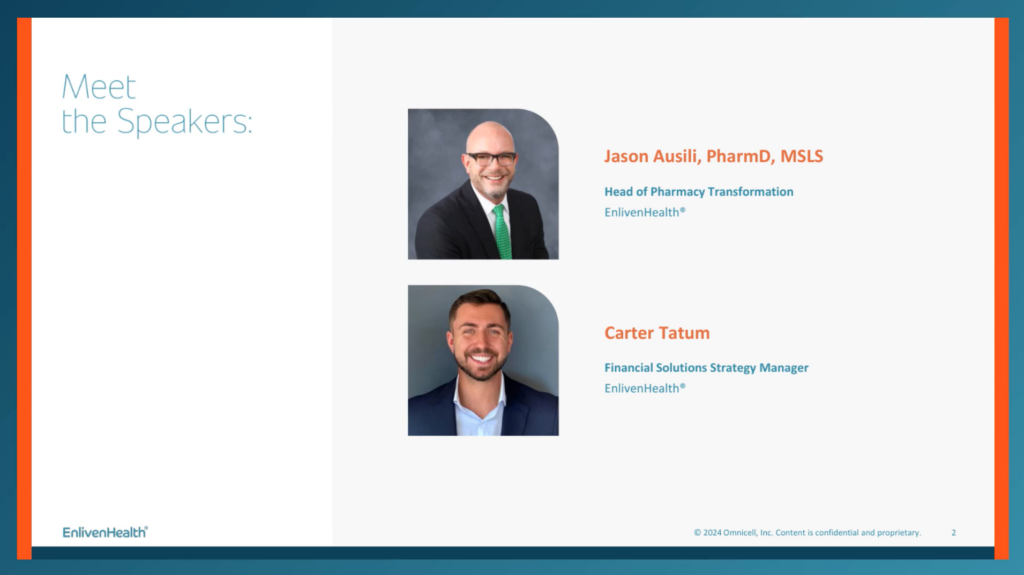
The Changing Landscape of Pharmacy: Embracing Convenient Care Services
Jason and Carter both conveyed the growing demand for accessible healthcare services and the shifting public perception of pharmacists as primary care providers. As pharmacies face challenges in the traditional business model of dispensing prescriptions, new clinical service opportunities offer a direct revenue stream and increased profitability. By incorporating medical billing into their workflow, pharmacies can expand their scope of practice and position themselves as integral parts of the healthcare ecosystem.
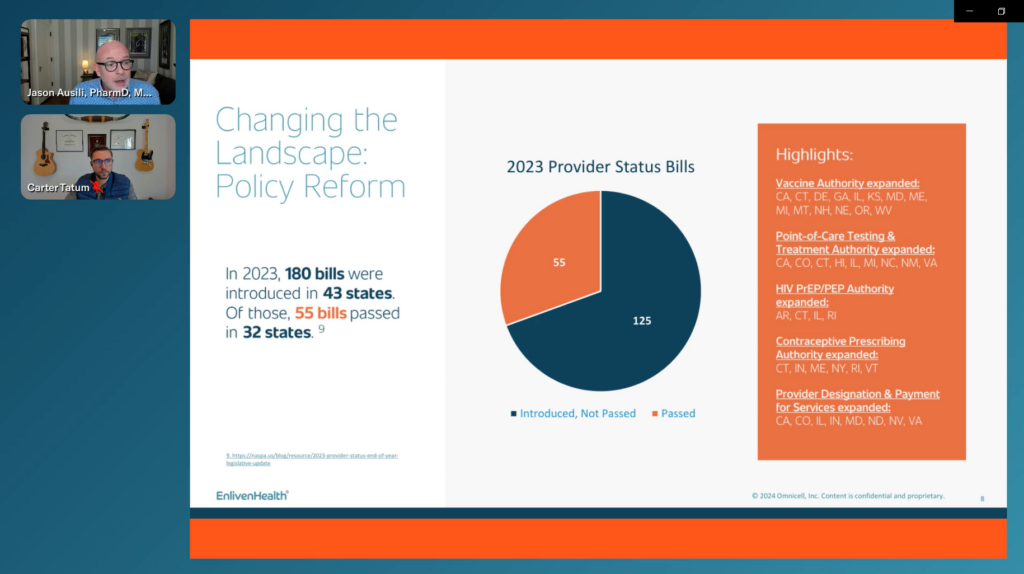
Key Steps to Successfully Implement Medical Billing
Carter Tatum emphasized five key steps that pharmacies should consider when implementing medical billing:
- Discovering Billable Services: Begin by identifying the services that are billable under the current scope of practice in your state. Stay informed about industry changes and research billing opportunities thoroughly.
- Getting Set up with Payers: Enroll correctly with payers, such as Medicare or commercial insurance, to ensure smooth claim submission and payment. Building strong relationships with payers is essential for successful medical billing.
- Incorporating Medical Billing into Your Workflow: Streamline your pharmacy workflows to accommodate medical billing. Having a champion who is well-versed in medical billing can lead the charge and troubleshoot any issues that may arise.
- Ensuring Claim Acceptance: It is crucial to verify that claims are being accepted. Implement effective tracking and management systems to minimize claim sitting time and increase acceptance rates.
- Finalizing Payments: Stay on top of payment cycles and processes to ensure timely reimbursement. Regularly log into the medical billing portal to track claims and use available tools to streamline the process.
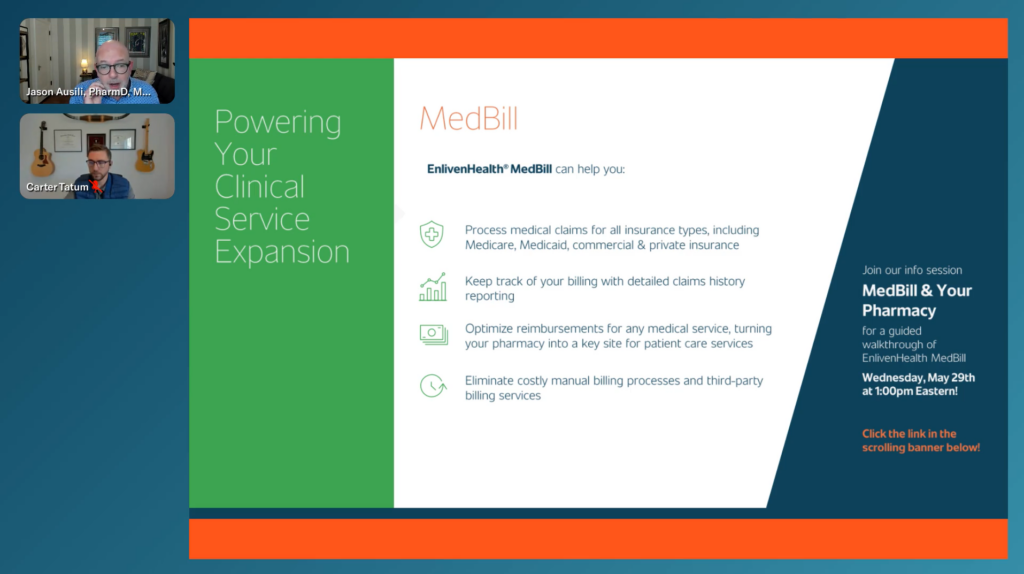
Leveraging Technology to Streamline Clinical Workflows
Jason highlighted the role of technology in facilitating clinical service delivery and medical billing. It’s essential to leverage technology to automate existing workflows, capture necessary information, and identify potential errors before submitting claims. The team introduced MedBill, a solution developed by EnlivenHealth that is designed to help pharmacies ensure accurate claim adjudication and capture the required information from the start. By adopting technology-driven solutions, pharmacies can streamline their end-to-end clinical workflows and make medical billing more feasible and impactful.
Building a Dedicated Medical Billing Team and Tracking Claims
Carter stressed the importance of having a champion within your pharmacy who is knowledgeable about medical billing and can guide the team through the transition. This individual would be responsible for troubleshooting claim rejection or denials and ensuring the success of the medical billing process. Additionally, he emphasized the need to establish a dedicated medical billing team within the pharmacy to ensure claims are being accepted and payments finalized efficiently. Effectively tracking and managing claims is key to maximizing revenue and growth.
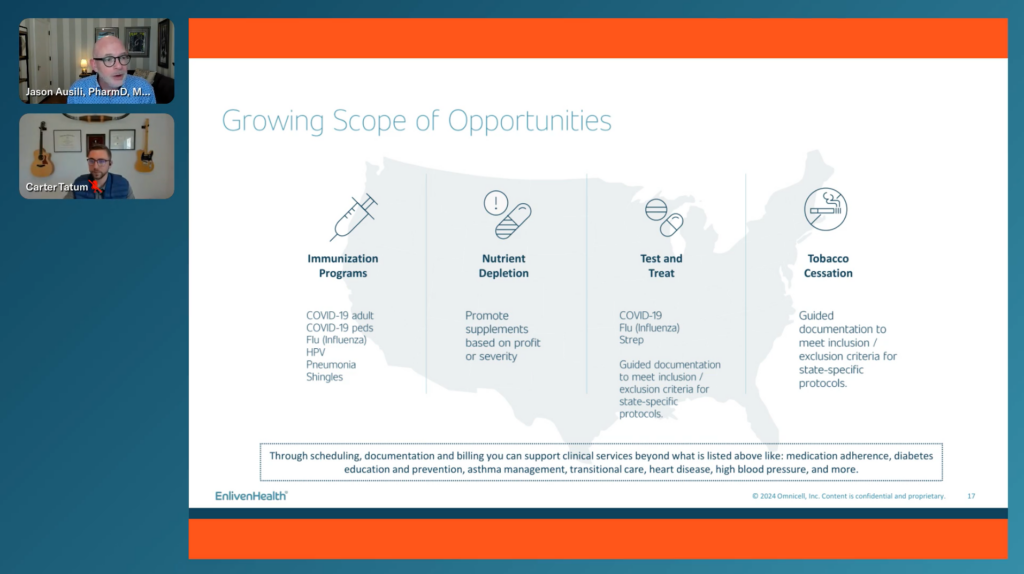
Seizing Opportunities and Expanding Services
Pharmacy transformation doesn’t happen overnight, but by embracing new opportunities and services, pharmacists can position themselves at the forefront of modern healthcare. Jason encouraged pharmacists to practice at the top of their licenses and provide services as permitted by their state scope of practice regulations. These services can include immunization programs, nutrient depletion management, test and treat programs, tobacco cessation counseling, hormonal contraception prescribing, and diabetes care. By starting with a single service and gradually expanding based on community needs and pharmacist availability, pharmacies can build a robust clinical revenue stream and enhance their patient care offerings.
Staying Informed and Engaging with Industry Changes
To adapt to the ever-evolving healthcare landscape, it is essential for pharmacists to stay informed about industry changes and the latest advancements in medical billing. Attending webinars, professional networks, and info sessions can provide valuable insights and guidance. Participating in such events can help you keep up with industry trends, learn about practical tools and solutions, and ensure your pharmacy stays ahead of the curve.
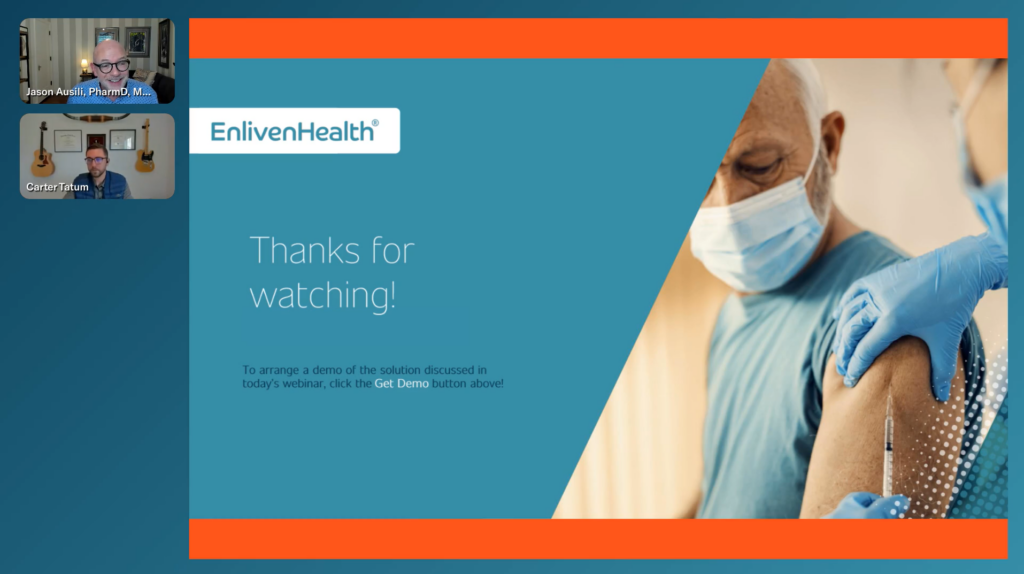
Conclusion: Unlock the Potential of Medical Billing for Your Pharmacy
“Medical Billing 101: Exploring the Basics of Clinical Care Reimbursement” offered a wealth of insights to pharmacists looking to maximize their revenue and efficiency through medical billing. By understanding the key steps involved in implementing medical billing, leveraging technology to streamline workflows, and building a dedicated team, pharmacies can seize the opportunity to expand their scope of practice, increase profitability, and deliver comprehensive care to patients. To learn more about EnlivenHealth MedBill, schedule a consultation with a member of our team today!
